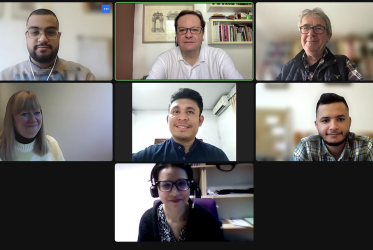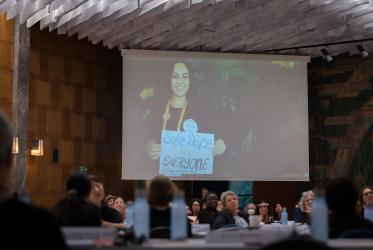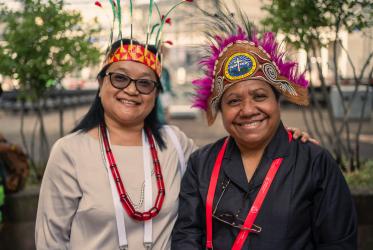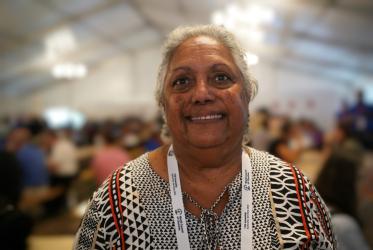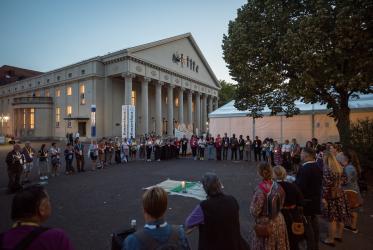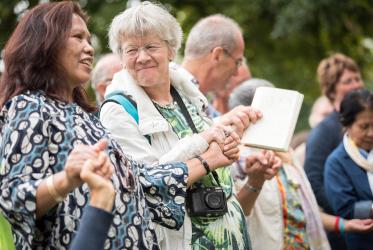Displaying 1 - 20 of 76
A global outlook from different angles
10 April 2024
Regional communicators strengthen WCC fellowship, deepen solidarity
08 February 2024
Indigenous women struggle for identity in Asia and beyond
05 September 2022




